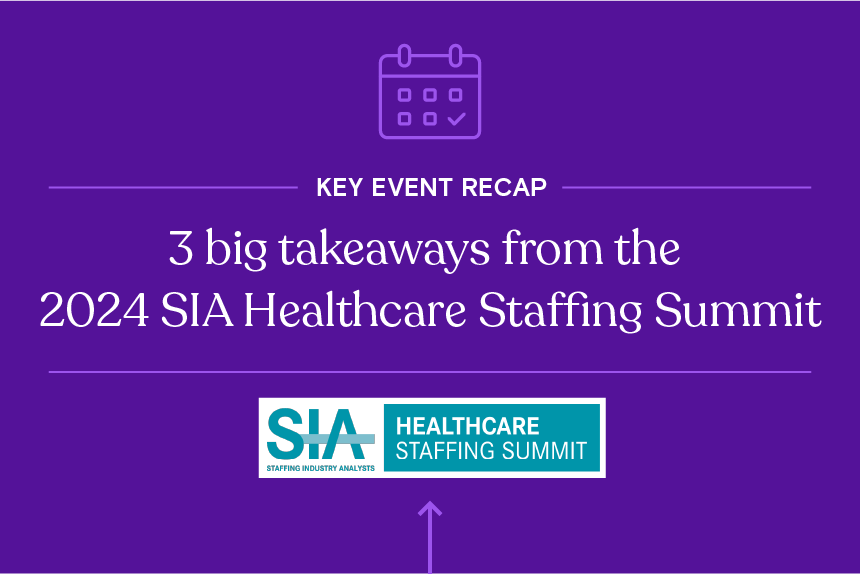Medical societies and associations play an important role in the healthcare ecosystem as organizations that offer not only education and resources to their members but also provide a platform for professional interactions and networking with colleagues in the same geography and/or specialty.
While education and networking where long the primary focus of medical societies and an important reason for establishing the first (US-based) ones in the 18th century, medical societies have taken on other important responsibilities.
For one, as large organizations, societies can more effectively advocate for the interests of their members than they could individually and are in a better position to create collaborations either with other societies, foundations or for-profit businesses.
An important additional responsibility that falls to medical societies is the development, publishing and updating of medical guidelines that provide healthcare providers with recommendations and best practices about how to diagnose, manage and treat medical conditions.
How experts can get involved
Medical societies offer a variety of opportunities for healthcare providers to get involved. Typical opportunities include sitting on the board of directors, holding a position on a committee, task force or council, such as conference program committees, membership or leadership committees, and participation in guideline development, e.g. as part of the oversight or writing committee or as a peer-reviewer of the draft guidelines.
From the perspective of a medical affairs professional, knowing whether an expert is active in a medical society and if so in which capacity can provide an important piece of the puzzle when identifying, prioritizing and engaging external experts.
In the remainder of this blog we will discuss why having information about an expert’s society activities is important and how it can inform your engagement strategy.
5 Ways society membership can inform expert identification and prioritization
Here are five ways how information about active participation in a medical society provides important insights about an expert:
- Active participants in a medical society allows you to quickly and easily identify experts who act as the voice of their collective specialty and as such know and likely represent the thinking of the majority of the members of that community. Engaging such an expert therefore provides a “short-cut” to understanding trends and developments within that specialty and potentially reduces the number of experts you need to engage to obtain the same consensus view.
- An important part of the work of medical society involves informing national and/or state policy related to their specialty. Participation, e.g. in the Policy or Legislation Committee is a great indicator for an expert who is interested in and up to date on policy discussions and advancing public health and can therefore be a valuable source of insights.
- Many medical societies have Leadership Committees whose role it is to actively engage in leadership development for the society’s members. These experts are critical to shaping the career development of physicians, advancing scientific knowledge, and medical education and can be a valuable resource for identifying emerging experts and/or collaborating on the development of educational materials for healthcare providers.
- Experts involved in medical guideline development and standards of care are not just recognized experts within their specialty, they are also familiar with the economic, commercial, or political pressures their discipline is facing and have a network of colleagues who are like them working on the forefront of their disciplines.
- Committee membership on Advocacy Committees allows you to identify those experts who act as a catalyst for positive change in medicine as it relates to patient advocacy and can relay the voice of patients on important issues.
In addition to these insights and qualification that experts, who are active in medical societies, can bring to the table, an overall reason to engage them is that they are well-recognized in their speciality, willing to actively shape the medical ecosystem, developing their therapeutic area or specialty and are part of a larger network of individuals with similar interest that they can reach out to.
How to find experts active in medical societies?
Information about committee or council membership is generally publicly available on the website of the society or association, e.g. the American Association for Cancer Research (AACR) lists the names of the members of their Annual Meeting, Scientific Review, Standing and Scientific Achievement Awards Committees on their website.(1) While this is useful information if you want to know who is actively engaged with the AACR, it doesn’t help if your goal is to find an expert with experience serving on a Public Health Committee or reviewing guidelines about pain management for migraine patients.
Finding experts with a very specific profile, including active society membership is made easier by adopting a data-driven process that starts with searching a comprehensive database of experts. This is why Monocl has now added medical society/association information to Monocl ExpertInsight: our expert profiles are now enriched with information about board and committee positions for 5,000+ medical societies worldwide. This feature makes finding these experts easy and convenient and elevates society membership form a nice-to-have feature that is time-consuming to obtain to one that can be easily filtered for.
In Monocl ExpertInsight the search is straight-forward and offers two options: searching for 1) experts who hold a position in any medical society or 2) expert members of the specific medical society you are interested in.
Life science companies invest a significant amount of time and money in identifying external experts. The more comprehensive the available information about these experts is the more streamlined the process becomes. Society membership is one important piece in the expert identification process that can help you hone in on the most appropriate candidates and with Monocl ExpertInsight this process has just become easier and faster.
The Monocl team is happy to show you this new feature in more detail. To get in touch with us simply book some time with one of our experts.






